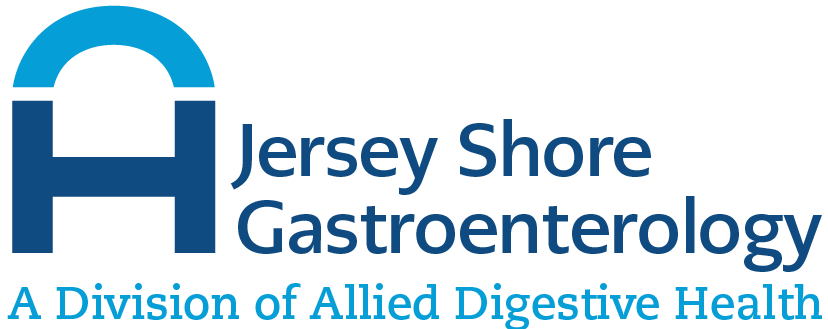Jaundice Treatment
Jaundice is a condition characterized by yellowing of the skin or eyes, but it can also affect the color of the mucous membranes and body fluids. The condition can develop in people of all ages and is directly related to a person’s bilirubin levels. Jaundice is much more likely to develop in older adults and infants, typically in their first few days of life. Read on to learn more about jaundice in newborns as well as adults, what causes jaundice, and what jaundice treatment options are available.
What Is Jaundice?
Jaundice is a yellow coloring of the skin and eyes (sclera) and is directly caused by too-high levels of bilirubin, which is a yellowish-orange pigment from bile, which is fluid secreted by the liver. Bilirubin forms from the breakdown of red blood cells (RBCs). Both adult jaundice and jaundice in newborns are caused by excess amounts of bilirubin, albeit for different reasons.
Infant jaundice is a yellow coloring of a baby’s skin and eyes because the baby’s liver isn’t able to purge the excess bilirubin from in the bloodstream after the breakdown of the baby’s red blood cells. In most cases, no treatment is needed as infant jaundice typically disappears after the first week of life as the liver adjusts. In rare cases, severe jaundice in an infant can cause brain damage (called kernicterus), and intervention is needed.
There is also a correlation between breastfeeding and jaundice and breast milk and jaundice. Breastfed babies and babies born before 38 weeks gestation have a higher chance of developing jaundice,
Adult jaundice often occurs when liver disease is present or some other condition is affecting the liver.
Types of Jaundice
There are three types of jaundice: prehepatic, hepatocellular, and posthepatic. These are described as:
- Prehepatic jaundice. This is characterized by an excessive RBC breakdown.
- Hepatocellular jaundice: This is characterized by dysfunction of the hepatic cells.
- Posthepatic jaundice: This type of jaundice is more severe and is characterized by obstruction (blockage) of the biliary tract.
All types of jaundice (except some infant jaundice, need to be treated by treating the underlying condition, if possible.
What Are the Symptoms of Jaundice?
The main symptoms of infant jaundice are the yellowing of the skin and eyes. You can touch your baby’s forehead gently, and if it looks yellow after the gentle press, it’s likely a sign of mild jaundice. More severe cases of jaundice in babies will present with a noticeable yellowing of the skin and eyes.
Jaundice, when it is present for a long time, can cause skin itching (pruritis). Adults have other symptoms beyond yellowing of the skin and eyes because adult jaundice is based on an underlying disorder. Other symptoms that can be associated with jaundice include:
- Skin itching
- Dark-colored urine
- Clay-colored stool
- Abdominal pain
- Fever and chills
- Inflammation of the joints (polyarthralgia)
If an infant or adult experiences yellowing of the skin and eyes, they should be evaluated by a gastroenterologist or medical professional.
What Are the Causes of Jaundice?
There are many causes of jaundice in adults. In babies, jaundice occurs typically because the liver can’t process bilirubin just yet, and typically clears on its own, although there is jaundice treatment for infants. In adults, jaundice can stem from many gastrointestinal conditions, diseases, and disorders, including:
Before Bilirubin Production (Prehepatic)
Jaundice that occurs before bilirubin production is known as unconjugated jaundice, and it can be caused by:
- Hemolytic anemias (cell death in the bloodstream before their time)
- Reabsorption of a large hematoma (clotted blood under the skin)
During Bilirubin Production (Hepatocellular)
Jaundice that occurs during the production of bilirubin has several underlying causes:
- Heavy alcohol use and associated liver disease
- Viruses, such as hepatitis A, chronic hepatitis B and C, and Epstein-Barr infection
- Medications, such as oral contraceptives, anabolic steroids, and antibiotics
- Metabolic defects
- Autoimmune disorders
After Bilirubin Production (Posthepatic)
If your jaundice occurs after bilirubin production, it can be the result of:
- Gallstones
- Pancreatic tumors
- Gallbladder or bile duct cancer
- Inflammation of the gallbladder
When Do I Need Medical Attention for Jaundice?
Most hospitals examine infants for jaundice before discharge. In most cases of mild jaundice, your doctor may suggest placing your baby in a sunlit area for a portion of the day (light therapy). However, if your baby’s jaundice becomes worse or does not respond to light, contact their physician immediately.
Adult cases of jaundice require jaundice treatment, particularly to treat the underlying issue. Some diagnostic tests your gastroenterologist may run include:
- Checking for signs of liver disease. This could mean bleeding of the skin, palmar erythema, which is a red discoloration of the palms, and spider angiomas, which are abnormal collections of blood vessels near the surface of the skin.
- Blood tests. These are performed to measure bilirubin levels in the blood.
- Urinalysis. This can show your complete blood count (CBC) and bilirubin levels if tested by serum testing
- Computed tomography (CT) scan or ultrasound. This determines the tenderness and size of the liver.
- Liver biopsy. This takes a liver sample for diagnosis.
Your doctor will also perform a physical exam to check for liver disease or damage.
Treatment Options for Jaundice
Jaundice treatment completely depends upon the underlying cause of jaundice. In infants, light therapy is often a first-line treatment, but if it is unsuccessful, babies may need intravenous immunoglobulin (IVIg), which is an intravenous blood transfusion or an exchange transfusion. Needing an exchange transfusion is rare and occurs only in rare infant cases. During the procedure, small amounts of the infant’s blood are withdrawn and replaced with different blood to dilute the bilirubin.
As jaundice is directly related to liver function, the underlying condition must be treated, such as cirrhosis of the liver or other liver diseases. If the jaundice is due to a ‘post-hepatic cause’, doctors can perform a procedure called ERCP (endoscopic retrograde cholangiopancreatography) to correct the cause, whether it is due to a gallstone or tumor. Jaundice can cause itching in adults, so your doctor may prescribe antihistamines to help improve itching.
Schedule a Consultation with a Gastroenterologist
If you or your infant have yellowing of the skin and eyes, or you have signs of liver disease accompanied by jaundice, you need jaundice treatment. To schedule a consultation with an experienced gastroenterologist, you can contact any of Allied Digestive Health’s care centers here. We offer compassionate and comprehensive care for all of your gastrointestinal needs.

